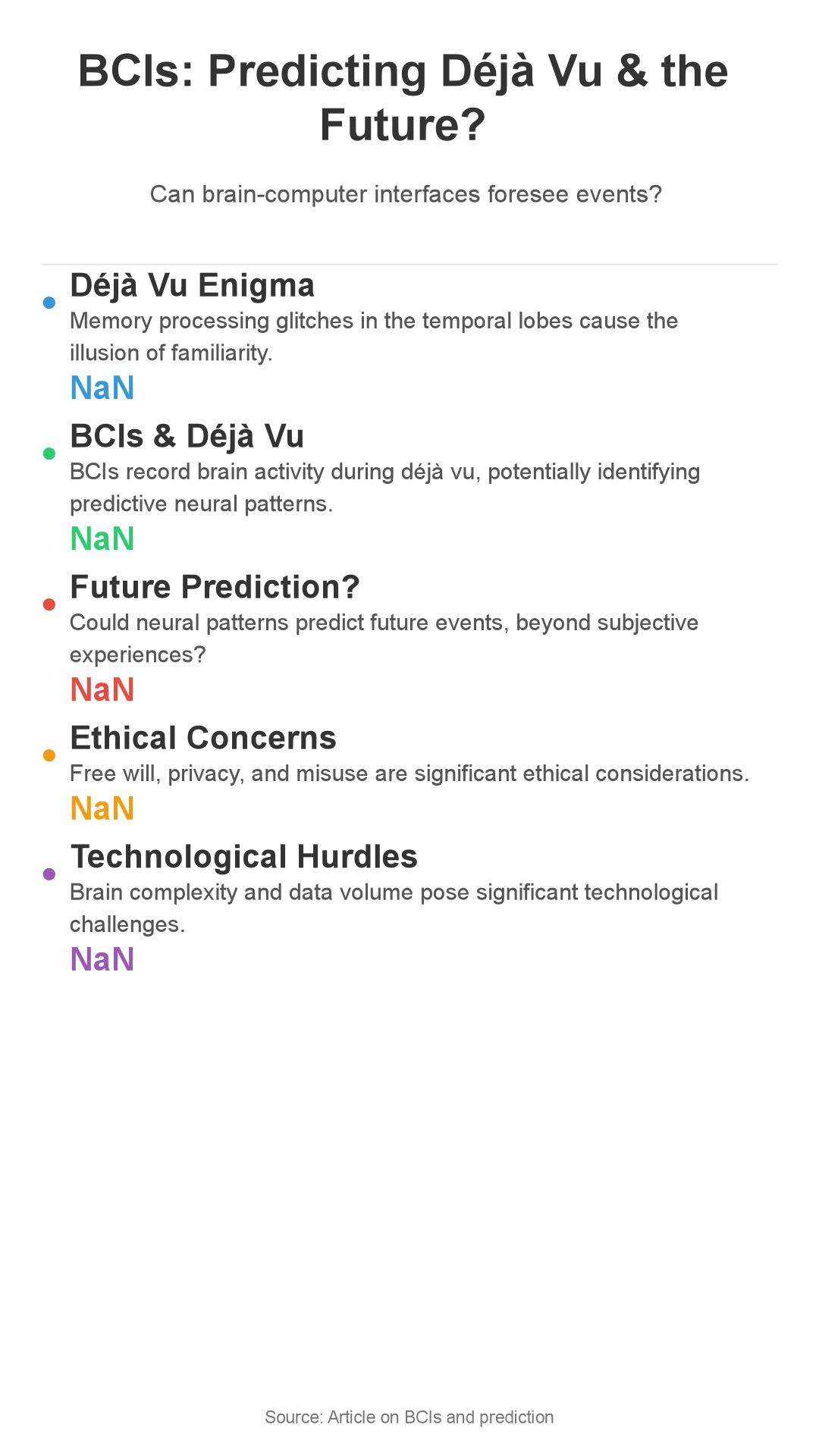
Ever experienced that eerie feeling of déjà vu? This video explores the potential of brain-computer
That unsettling feeling of having lived this moment before—déjà vu. What if technology could not only explain it but also offer a glimpse into the future? Brain-computer interfaces are pushing the boundaries of what’s possible, and the implications are fascinating. Let’s explore!
Welcome back, future-focused explorers! Today, we delve into the fascinating intersection of neuroscience and technology: Could brain-computer interfaces (BCIs) unlock the secrets of déjà vu and even predict the future?
Déjà Vu: A Neurological Enigma
Current Theories on Déjà Vu
Déjà vu—that eerie sense of familiarity with a completely new experience—has puzzled scientists for decades.
Current theories suggest glitches in the brain’s memory processing, particularly within the temporal lobes, crucial for memory formation and retrieval.
One leading hypothesis proposes a slight delay in information processing between sensory input and memory systems, creating the illusion of prior experience.
BCIs: Peering into the Déjà Vu Experience
Brain-computer interfaces offer a innovative approach. BCIs can record brain activity with unprecedented detail. Imagine capturing real-time neural data during a déjà vu episode.
BCIs and Neural Pattern Recognition
Decoding Complex Neural Signals
Advanced BCIs are rapidly improving their ability to decode complex neural signals.
Machine learning algorithms already translate brain activity into commands for prosthetic limbs and virtual reality interactions.
If BCIs can identify these predictive patterns, could they forecast a déjà vu event? While speculative, this possibility is incredibly exciting. Predicting a neurological event opens doors to preventative measures and therapies.
The Speculative Leap: Predicting the Future?
Neural Patterns and Future Events
Now for the truly groundbreaking idea: Could the principles used to predict déjà vu extend to predicting other future events? This is highly speculative, but the concept is that specific neural patterns might precede not only subjective experiences like déjà vu, but also objective external events.
Ethical Considerations and Limitations
The ethical implications are profound. Predicting the future, even on a small scale, raises critical questions about free will, privacy, and the potential for misuse.
Could such predictions be manipulated to control individuals or infringe on their autonomy? Algorithmic bias in interpreting neural data is another serious concern.
Current Limitations and Future Research Directions
Technological Hurdles
The technology for this level of prediction is nascent.
The human brain’s complexity and the sheer volume of neural data present significant technological hurdles.
The Need for Extensive Research
Establishing a causal link between specific neural patterns and future events is a monumental undertaking. Years, perhaps decades, of rigorous research are needed to validate any claims.
So, what are your thoughts? Is predicting the future with BCIs science fiction, or a possibility closer than we think? Share your insights in the comments!
Call to Action: Want to stay informed about breakthroughs in brain-computer interfaces and their potential applications? Subscribe to our newsletter for the latest fascinating updates!

Enjoyed this? Check out our YouTube channel for video versions!
Enjoyed this? Check out our YouTube channel for video versions!



